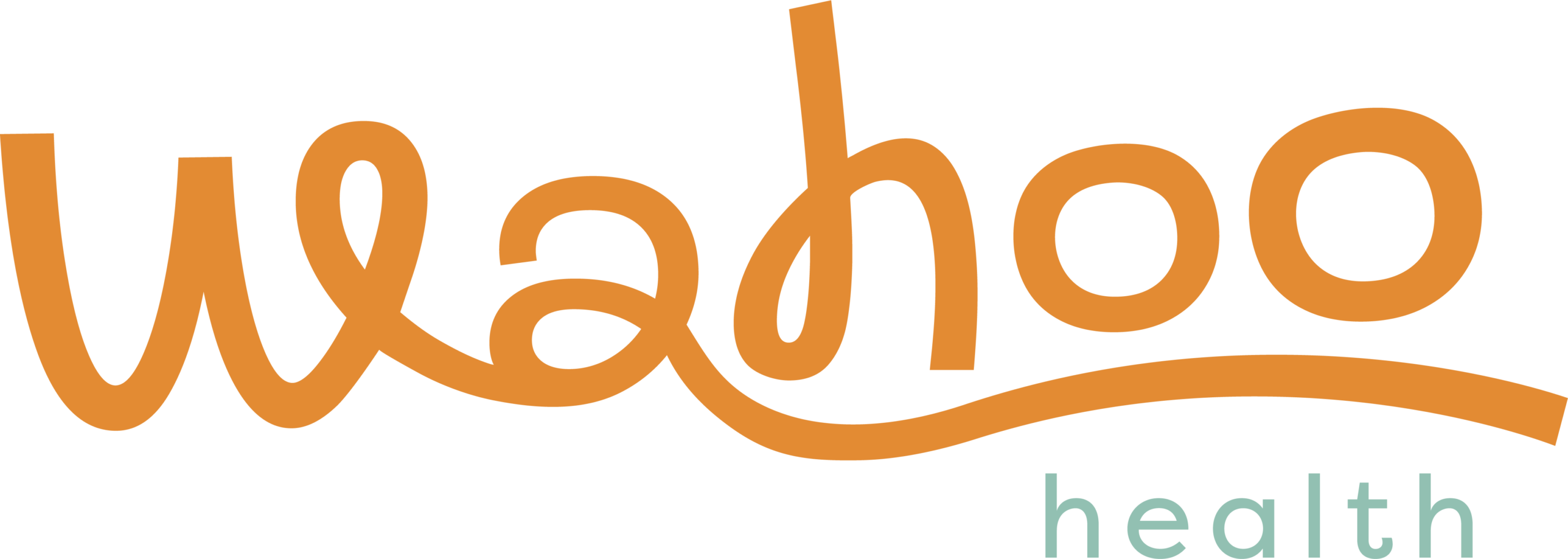How Can We Help?

Sales Process
How does this work?
Check out this short video on how Wahoo Health works!
Are all insurance carriers on Wahoo?
No, at Wahoo we believe that not all carriers are created equal. We are only presenting health insurance carriers that we believe provide the best overall health care experience.
How do I know which insurance carrier is better?
As is the case with most consumer experiences, which carrier you choose is dependent on a variety of different factors. Some carriers have larger networks than others. Some carriers do a better job with customer service. All carriers represented on the Wahoo site have been vetted by a team of experts to ensure high quality benefits. If you would like to discuss specifics about any carriers on Wahoo, please email hello@wahoohealth.com
Why do each of my employees receive a different rate/premium?
When the Patient Protection and Affordable Care Act (often called “Obamacare”) passed, it required that insurance carriers create separate rates based on age and location of employees and their dependents.
What are the key things for me to consider when purchasing health benefits?
It all starts with some self-assessment on what you want to accomplish. If, for instance, you’re in an industry with high competition for talent, you may want to consider how current and prospective employees will perceive your benefits. They might be looking for an employer that offers low deductible products with a broad network. If, however, you’re offering benefits for the first time and you only need a catastrophic plan for your employees, consider higher deductible plans with smaller networks. The key thing is to consider your reasons for offering health insurance.
What information do I need to enroll?
There are two distinct enrollment activities. First, the carriers will need information regarding your business to set-up an account – the Wahoo site will prompt you for this information when you’re ready to purchase coverage. Second, we will need information regarding your employees and any dependents that they wish to coverage. All of this information is collected through the Wahoo website.
If I find a plan but I’m not ready to buy, can I save it for later?
Yes. You will be able to save your desired plan in your cart to resume and purchase later.
Can I get a cheaper rate for the same plan from another agency?
Nope, ACA small group rates are the same rates for like coverages regardless of the source from which you purchase your coverage, putting much of the decision as to ease of purchase, renewal and services offered from the agency, such as Wahoo Health.
How long are the quoted rates good for?
Once enrolled in a health care plan, rates are guaranteed for 12 months from the effective date of your coverage. Going forward, rates renew annually, or in other words, they are again fixed for 12 months at a time. Upon each annual plan anniversary (plan year), both the plan and the rates are subject to change based on industry required benefits, carrier loss ratios, and employee and dependent demographics (age and number of dependents)
Will the rates change for my employees when they have a birthday during the plan year?
The quoted rates will not change upon an employee or dependents birthday during the plan year. However, the renewal rates will be based on their attained ages at the time of the upcoming renewal date.
How long does it take to enroll?
Generally, most carriers want at least 30 days to set a new group up in their systems. The more time, the better!
Product Questions
Can you tell me the key attributes of a health insurance product?
Sure! Most health insurance products include the following key attributes:
- Deductible
- Coinsurance
- Copays
- Out of pocket maximum
- Network
What is a deductible?
The deductible is the amount of money that an individual or family is required to pay before the health insurance plan begins to contribute towards coverage. For instance, if an individual has a $1,000 deductible, he or she would pay for the first $1,000 of medical coverage before the health insurance carrier begins paying towards coverage.
What is coinsurance?
Many plans have coinsurance – which is cost sharing between the insured and the health insurance carrier. For instance many plans have 80/20 coinsurance. This means that the insurance carrier will pay for 80% of the cost of a bill and the insured will pay 20%. So, if a bill was $1,000, the insurance carrier would pay $800 (80%) and the insured would pay $200 (20%).
What is a copay?
Some plans have certain services (office visits, specialist visits, urgent care visits, emergency room visits, and prescription drugs are the most common) where a flat dollar copay applies. An individual would pay that flat dollar amount every time he or she utilizes that service. For instance, if my plan has a $25 office visit copay, I would pay that every time I go to see my primary care physician.
What is an out of pocket maximum?
All products have an annual out of pocket maximum which caps the amount an individual and/or their family will pay in a given year. This can be viewed as a “worst case scenario” and combines all costs an individual or family pay toward deductibles, coinsurance, and copays.
What are networks?
In order to keep costs down and to ensure quality, health insurance establish networks of physicians, hospitals, pharmacies. The four most common network types are:
- Health Maintenance Organizations (HMO). Generally, these are the most restrictive networks and offer the lowest cost. When you are in a HMO, you must see physicians within the HMO network. Also, you must choose a primary care physician within the HMO network to facilitate your care.
- Point of Service (POS). Point of service plants are a hybrid between HMOs and PPOs and share attributes of each. For the lowest cost, someone in a POS needs to access in network physicians and elect a primary care physician to facilitate care. However, with a POS product an individual can access physicians outside of the POS network if they are willing to pay higher costs.
- Exclusive Provider Organization (EPO). With an EPO, a person must access providers within the EPO network, but that network tends to be broader than in a HMO or POS plan. Normally, you do not need to elect a PCP physician in an EPO plan.
- Preferred Provider Organization (PPO). A PPO plan generally has a very broad network of physicians an individual can choose from and you do not have to choose a PCP to facilitate care. Additionally, a person in a PPO can choose to go outside of the network if he or she is willing to incur more cost.
What are the most common plans small employers buy today?
The most common health plans in place today are HMO based health plans, as they offer the most competitive rate structure for any plan design, with sufficient statewide or regional provider networks. In 2024 the top ten health plans, by membership enrollment are:
- HMO HSA $1600 Deductible
- HMO $1000 Deductible
- HMO HSA $2350 Deductible
- HMO $2000 Deductible
- HMO $1500 Deductible
- HMO $250 Deductible / 100%
- HMO $500 Deductible
- HMO $3750 Deductible
- HMO HSA $3200 Deductible
- HMO HSA $7500 Deductible
Next Steps
How do I structure employee contributions?
Most employers do not pay for the full amount of their employees and their dependents health insurance premiums. There are a lot of different ways to structure your employee contributions, but one of the most common is setting a percentage that you will pay for as an employer. The most common ranges we see are between 50% and 80%. If, for instance, you are struggling with employee recruitment and retention, you may want to pay for 80% of the health premium costs. You can change the contribution amount annually to meet your business needs.
Insurance 101/General Questions
What if I need help? Who do I reach out to?
Wahoo Health is backed up by a benefits agency that has been in the business for over 60 years. Reach out to our team of experts at 855-HI-WAHOO or at hello@wahoohealth.com.
How do I know who is eligible for benefits?
In order to purchase employer-sponsored health insurance, you need to meet certain criteria set by the government and health insurance carriers. Some of the most important ones include:
- You must have employees enroll in the coverage – you cannot, as a business owner, only enroll you and your dependents.
- You must be headquartered in the state of the carrier from which you are purchasing your coverage
- You must have a federal tax ID number
- You must have the capability to withhold payroll taxes on wages paid to employees
- You must contribute to state unemployment funds
- You must provide workers compensation insurance as required by state law and
- You must be in good financial standing (not in bankruptcy or receivership)
Is this HIPPA Compliant?
Yes. We follow all laws and compliance regulations to ensure the safety of yours and your teams and their families information.
HSA Questions
Why should you consider offering an HSA as your small group health plan?
The HSA is a truly unique health plan designed to maximize tax savings, incentevize the use of preventive health care services, and invoke a sense of individual consumerism upon your team members as they are enabled the ability to wrangle control of their personal health care expenses.
HSAs and Medicare
Once a team member is enrolled in Medicare, they can no longer contribute to their HSA program. However, they can use their HSA funds for several eligible expenses, such as:
- Medicare Part A, B, C and D Premiums, but they cannot be used to pay for Medicare Supplement premiums.
- If your team member attains age 65 (and/or Medicare enrollment) and continues to work full-time, they can use their HSA funds to pay for required employee premium contributions.
How do I know who is eligible for benefits?
In order to purchase employer-sponsored health insurance, you need to meet certain criteria set by the government and health insurance carriers. Some of the most important ones include:
- You must have employees enroll in the coverage – you cannot, as a business owner, only enroll you and your dependents.
- You must be headquartered in the state of the carrier from which you are purchasing your coverage
- You must have a federal tax ID number
- You must have the capability to withhold payroll taxes on wages paid to employees 5) you must contribute to state unemployment funds
- You must provide workers compensation insurance as required by state law
- You must be in good financial standing (not in bankruptcy or receivership)


